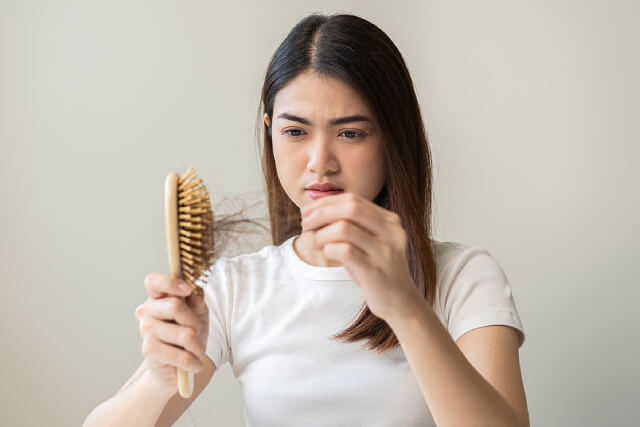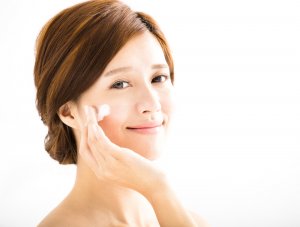
Stress has become an inevitable part of our lives, affecting our health in various ways. One of the lesser-known impacts of stress is its link to hair loss, especially in women. The intricate relationship between stress and hair loss often goes unnoticed, but understanding this connection is crucial for effectively managing both stress and its effects on hair health.
Hair loss, medically termed as alopecia, is a condition that can occur due to a multitude of factors, including genetics, hormonal changes, medical conditions, and stress. While it’s normal to shed around 50 to 100 hairs per day, excessive hair loss can be distressing and indicative of an underlying issue. Chronic stress is known to disrupt the normal functioning of the hair growth cycle, leading to increased shedding and even bald patches in severe cases.
How stress leads to hair loss
Stress triggers a physiological response in the body, known as the ‘fight or flight’ response, which is governed by the release of stress hormones like cortisol and adrenaline. While this response is essential for survival in threatening situations, prolonged exposure to stressors can wreak havoc on various bodily systems, including the hair follicles.
Chronic stress disrupts the balance of hormones in the body, leading to an increase in cortisol levels. Elevated cortisol levels can negatively impact the hair growth cycle by causing more hair follicles into the resting phase (telogen phase), resulting in excessive shedding known as telogen effluvium. Moreover, stress-induced inflammation can further damage the hair follicles, leading to miniaturisation and eventual hair loss.
Managing stress to preserve hair health
Effective stress management is key to preserving hair health and preventing further hair loss. Adopting lifestyle changes and stress-relief techniques can help mitigate the effects of stress on the body and promote hair growth. Some strategies to manage stress include:
Practice relaxation techniques: Engage in relaxation techniques such as deep breathing, meditation, yoga, or tai chi to calm the mind and reduce stress levels.
Regular exercise: Incorporate regular physical activity into your routine, as exercise is known to reduce stress and promote overall well-being.
Maintain a healthy lifestyle: Eat a balanced diet rich in vitamins, minerals, and antioxidants to support hair health. Adequate hydration and sufficient sleep are also crucial for managing stress and promoting hair growth. Maintaining a balanced diet and lifestyle can also help regulate hormone levels and reduce inflammation, which are key factors in acne development.
Seek support: Don’t hesitate to seek support from friends, family, or a professional medical and aesthetics clinic to help you cope with stress and its effects.
Professional treatment options: In severe cases of stress-related hair loss, seeking professional help from a dermatologist or trichologist is advisable. They can recommend personalised treatment options such as topical medications, oral supplements, or in-office procedures to stimulate hair growth and address underlying issues.
Conclusion
The connection between stress and hair loss in women is undeniable, but it’s not a one-way street. By managing stress effectively and adopting healthy lifestyle habits, women can mitigate the impact of stress on their hair health and overall well-being. If you’re struggling with stress-related hair loss or other dermatological concerns, APAX Medical & Aesthetics Clinic offers a range of services, including acne scar removal and cystic acne treatment to help you look and feel your best.
Request a CallBack
Get in touch with us with any questions, pricing, or bookings.
Or give us a call at +65 6769 6007 | WhatsApp us +65 9855 3022









